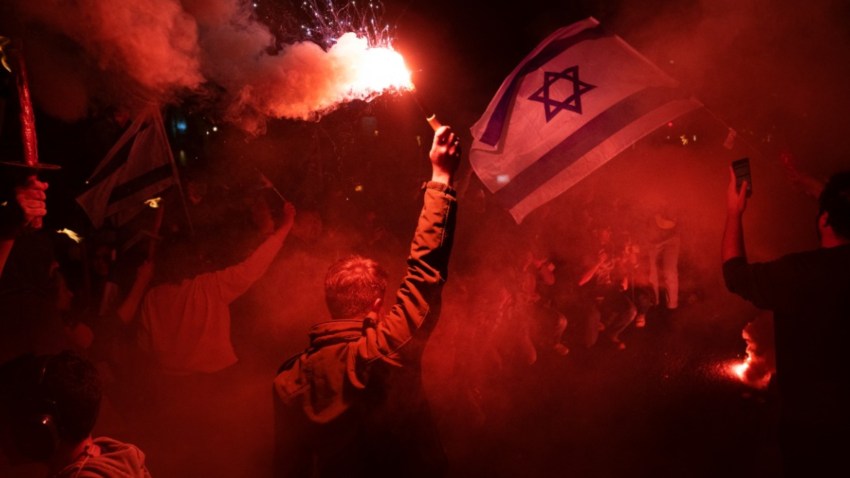TEL AVIV, Israel—In recent weeks, hundreds of thousands of Israelis have taken to the streets to join large-scale, unprecedented protests against the government of Prime Minister Benjamin Netanyahu’s attempts to push through legislation that would undermine judicial independence and weaken vital checks and balances in the country’s system of government. The historic nature of the ongoing protests, and what they portend for the future of the Jewish state, is inescapable.
In addition to the assault on the judiciary, members of Netanyahu’s coalition—many of whom hold anti-Arab, homophobic and misogynistic views—are pressing for the adoption of other illiberal policies, like stripping citizenship and residency rights from Arabs convicted of terrorism. The government has also taken steps that move Israel closer to what is tantamount to annexation of the Occupied Territories, transferring authority over civilian affairs in Jewish settlements to a Cabinet minister who could also enable increased settlement construction and prevent Palestinian development in the West Bank.
During a recent visit I made to Israel, the “matzav”—understood not in the sense of its historic reference to the Israeli-Palestinian conflict, but as a reference to the ongoing domestic political unrest—dominated my conversations. I spoke to some supporters of the proposed overhaul, who argued that the reforms are a much-need course correction to empower Israel’s religious and nationalist right-wing forces, which have long found themselves marginalized on the high court. But opponents regard the proposals as an attack by the government on core democratic principles, including freedom of expression and the separation of powers, and therefore as a threat to the state itself.

